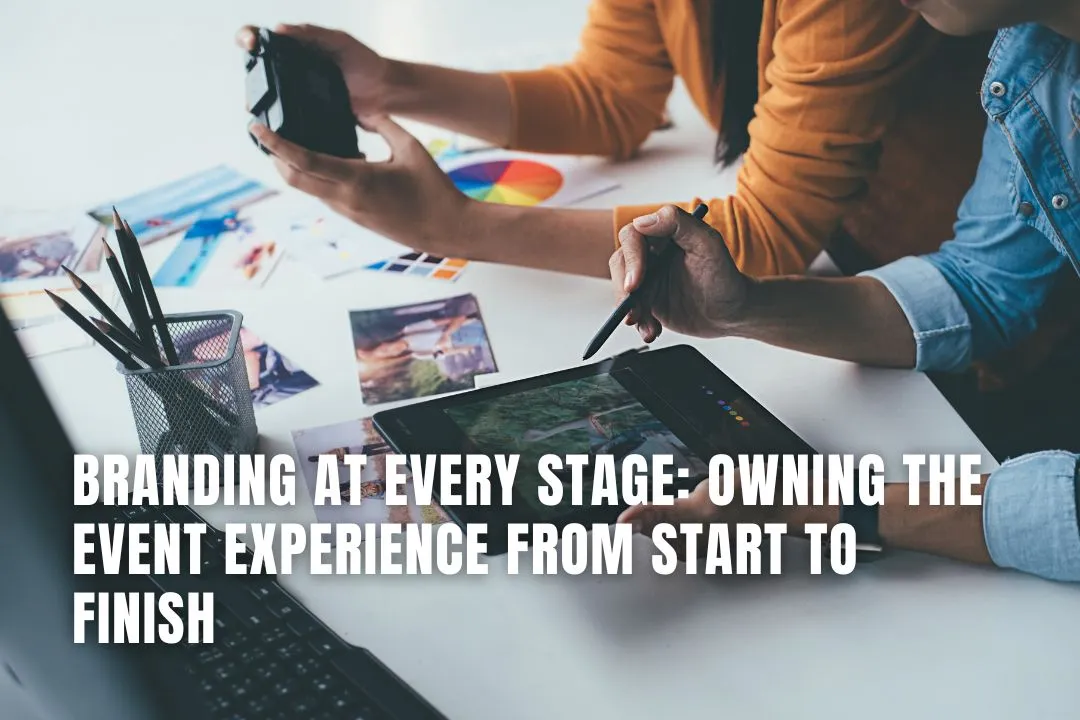
Editorial Disclaimer
This content is published for general information and editorial purposes only. It does not constitute financial, investment, or legal advice, nor should it be relied upon as such. Any mention of companies, platforms, or services does not imply endorsement or recommendation. We are not affiliated with, nor do we accept responsibility for, any third-party entities referenced. Financial markets and company circumstances can change rapidly. Readers should perform their own independent research and seek professional advice before making any financial or investment decisions.
A well-branded event creates more than just a day of experiences. It leaves behind impressions, digital content, and emotional connections that continue to influence your audience long after the lights dim. But to accomplish this, branding must be intentionally embedded throughout the entire event lifecycle and not just during the event itself. From the first announcement to the last follow-up email, each moment is a branding opportunity that contributes to the perception and staying power of your message.
Strong branding begins before the event is live. Visual identity and tone must align across every platform, from the registration page to social media promotions. Messaging consistency helps build anticipation and establishes expectations. Logos, colour schemes, and brand voice should be seamlessly applied across digital and print materials. Even small touchpoints like confirmation emails or speaker announcements play a role in shaping brand perception.
Event websites should be more than functional. They should feel like an extension of your brand’s personality. A generic registration flow can erode that identity. Using white label ticketing helps reinforce brand ownership by keeping visitors immersed in your visual and verbal ecosystem. This keeps competitors out of sight and positions your brand as the sole host of the experience.
Once attendees are present, consistency continues with the physical and digital atmosphere. Venue design, signage, and staff presentation should reflect the same branding seen in pre-event materials. Brand elements should not overwhelm but should quietly guide the experience. Even slide decks, name tags, and refreshments can reinforce identity when approached with intention.
Digital integration during the event matters as well. Live apps, interactive displays, and social feeds should continue to carry your brand voice. If the event is hybrid or virtual, the digital environment must mirror the in-person tone through customised platforms, branded interfaces, and cohesive visuals.
After the final session ends, branding efforts continue with post-event communication. Thank-you messages, surveys, recap videos, and social media content serve as final reminders of your event’s experience. These pieces should reflect the same design and voice established earlier to keep the brand memory alive. Even small details like the typography in an email or the music used in a highlight reel can reinforce the emotional connection guests formed with your brand.
Post-event branding is also about bridging into future initiatives. Share key takeaways, user-generated content, and testimonials while maintaining your brand’s tone. Consider hosting follow-up webinars, offering exclusive content access, or spotlighting attendee stories to deepen engagement. This helps transition attendees into loyal followers, subscribers, or return guests.
Every event is a chance to communicate your brand’s values through action and design. Done well, this communication feels natural and intentional at every stage. It builds trust, drives engagement, and boosts retention without having to oversell. As audiences become more selective with how they spend their time and attention, delivering a consistent and engaging brand experience through the entire lifecycle becomes less of an advantage and more of a necessity. To learn more, look over the accompanying resource.
